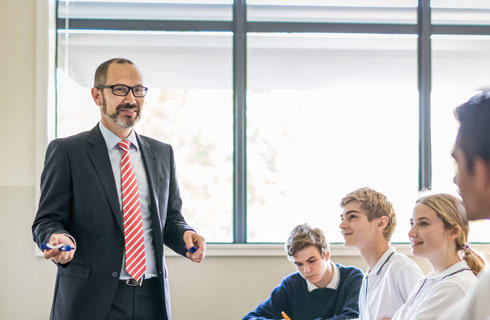- IDP China>
- 课程库>
- 艺术与设计>
- 艺术、人文与社会科学>
- 人类社会研究>
- Bachelor of Arts (Honours) in Art History - Including Year Abroad
艺术史(荣誉)文学士学位-包括海外年份
Bachelor of Arts (Honours) in Art History - Including Year Abroad

学历文凭
Bachelor Degree with Honours

专业院系
Philosophical, Historical, and Interdisciplinary Studies

开学时间

课程时长

课程学费

国际学生入学条件
IDP—雅思考试联合主办方

雅思考试总分
- 雅思总分:
- 托福网考总分:
- 托福笔试总分:
- 其他语言考试:
CRICOS代码: V35A
申请截止日期: 请与IDP联系 以获取详细信息。
课程简介
Our BA Art History (including Foundation Year) could be suitable for you if your academic qualifications do not yet meet our entry requirements for a three-year version of our arts and humanities courses and you want a programme that improves your skills to support your academic performance. Open to UK and EU applicants, this four-year course includes a Foundation Year (known as Year Zero) which is delivered by our Essex Pathways Department followed by three years of study with your department. During Year Zero you will study on our Arts and Humanities Pathway which will cover topics such as Analysing Film, Text and Image; and Theory of Knowledge. At the end of Year Zero all students who pass the Arts and Humanities Pathway will have a choice of which course to progress with. As well as BA Art History students on the Arts and Humanities Pathway could also study BA Philosphy or BA History, amongst other courses. At Essex, you will acquire a broad foundation in the history of visual culture: both by learning about canonical forms of art and architecture and by discovering what has been overlooked or marginalised, such as medical photography, tattoos or objects from political protests. You will also develop the skills you need to make exciting new connections between the forms of visual culture you study, developments in other disciplines, and broader social and political forces. You will develop the skills you need to transform your excitement about art, architecture and visual culture into the ability to uncover new insights about the material you study. You will also develop a solid grounding in the history of art and other forms of visual culture, including the ideas and forces that shaped their production, distribution and reception. For students with a particular interest in pursuing careers in curating and museumship, we also provide modules every year that explore the histories, theories and practices of museums, exhibitions and galleries, as well as more nuts-and-bolts issues, such as installing and marketing artwork. You will be taught by our expert staff in your very first year, a rarity in UK art history courses. We also house a collection of over 750 pieces of art from Latin America, ESCALA.
相关申请
 预科
预科 奖学金
奖学金 实习机会
实习机会 在校学习
在校学习 跨境学习
跨境学习 校园授课-线上开始
校园授课-线上开始 在线/远程学习
在线/远程学习
开学时间&学费
学费信息仅供参考,请与IDP联系以获取详细信息
| 开学时间 | 时长 | 学费 | 地点 |
|---|
学校排名

世界排名251
数据源:
泰晤士高等教育世界大学排名
关于埃塞克斯大学

埃塞克斯大学是一所广受尊敬的大学,其校区位于英格兰东部,交通便利,可轻松前往伦敦,为学生提供全面的本科和研究生学位课程以及丰富的大学体验。埃塞克斯大学在科尔切斯特和拉夫顿两个校区开设课程,学生可以在这里获得优质的学术资源和高标准的教学。埃塞克斯大学的教师帮助学生迎接生活中的挑战,鼓励学生个性发展、同伴互助学习、批判性思维和独立生活。埃塞克斯大学热烈欢迎国际学生,从开学第一周起就组织了丰富多彩的活动。埃塞克斯大学营造了一个多元化、包容性强的社区,学生可以在这里结交终生好友,创造难忘的经历。埃塞克斯大学还为国际学生提供各种奖学金,以及就业技能方面的支持和研讨会,帮助他们在学习期间和学习结束后成功申请工作。学生通过参加讲座、研讨会和小组学习来推进课程。他们还可以使用艺术与人文学部、科学与健康学部以及社会科学学部的众多设施。热门学科领域包括计算机科学、商业与管理、经济学、法律和健康。埃塞克斯大学与世界各地的大学建立了跨学科的合作伙伴关系,丰富了其研究和学习。学生可以享受两个校区提供的设施--例如行业标准的工作室、编辑室、健身房、校内电影院、公共学习区、学生会社交空间等等
本校相关课程

社会学和管理文学硕士
学历文凭
Masters Degree (Taught)
开学日期
课程费用总额


工商管理硕士:埃塞克斯工商管理硕士
学历文凭
Masters Degree (Taught)
开学日期
课程费用总额


智能系统和机器人科学理学硕士
学历文凭
Masters Degree (Taught)
开学日期
课程费用总额


研究生文凭统计与运筹学
学历文凭
Graduate Diploma
开学日期
课程费用总额


研究生数学和金融文凭
学历文凭
Masters Degree (Taught)
开学日期
课程费用总额


金融与投资理学硕士
学历文凭
Masters Degree (Taught)
开学日期
课程费用总额

其他相关课程

国家土著研究中心哲学博士
 澳大利亚国立大学
澳大利亚国立大学学历文凭
Ph.D.
开学日期
课程费用总额


芬纳环境与社会学院哲学硕士
 澳大利亚国立大学
澳大利亚国立大学学历文凭
Masters Degree (Research)
开学日期
课程费用总额


社会科学学士(荣誉学位)
 纽卡斯尔大学
纽卡斯尔大学学历文凭
Bachelor Degree with Honours
开学日期
课程费用总额


哲学博士(人文,艺术和社会科学)
 斯威本科技大学
斯威本科技大学泰晤士高等教育世界大学排名:282
学历文凭
Ph.D.
开学日期
课程费用总额


国际发展研究生文凭
 乐卓博大学
乐卓博大学泰晤士高等教育世界大学排名:267
学历文凭
Graduate Diploma
开学日期
课程费用总额


土著哲学博士
 南十字星大学
南十字星大学泰晤士高等教育世界大学排名:456
学历文凭
Ph.D.
开学日期
课程费用总额










 英国
英国